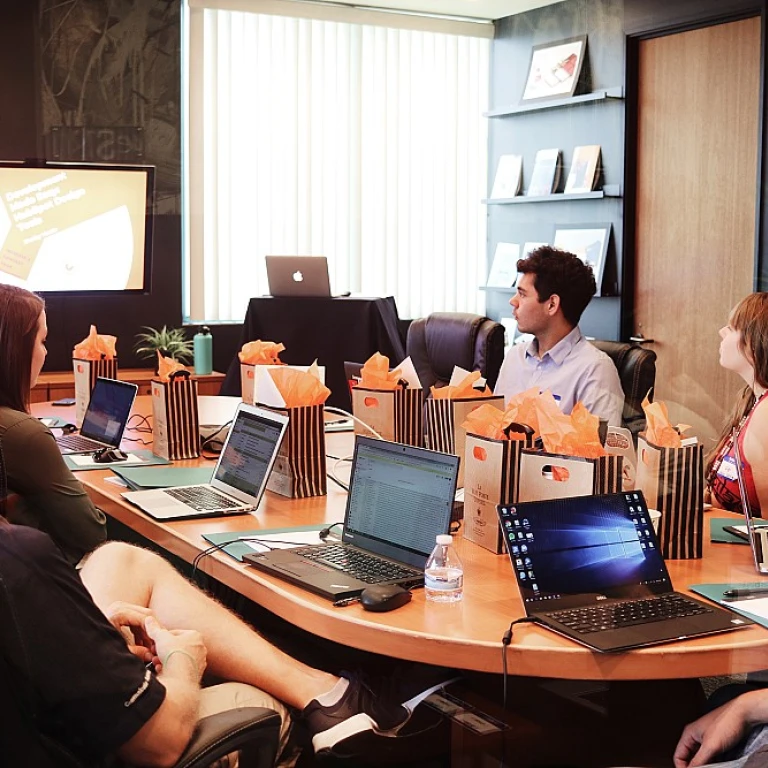
The Rise of Generative AI in Workforce Training
The Advent of AI in Modern Workforce Training
The emergence of generative AI has made significant waves in various industries, particularly in the realm of workforce training. Companies are increasingly turning to this advanced technology to transform employee training programs and bridge skill gaps within their organizations. Generative AI introduces a sophisticated level of customization and adaptability by leveraging data to create personalized and innovative learning experiences. Artificial intelligence has expanded beyond its traditional capabilities and is now being integrated into employee development strategies, enabling workforce development to take on a more dynamic form. This shift supports the adaptive learning journey, tailored to meet the evolving needs of both employees and organizations. Generative tools provide real-time feedback, enhancing training strategies and preparing the workforce for the future work demands. Organizations are leveraging generative AI to tackle several key challenges, including optimizing training development and ensuring data privacy and security. The potential of generative AI to revolutionize workforce training is vast, promising a future where employee training programs are not only more effective but also more engaging and business-oriented. Embrace growth opportunities in human resources to fully harness the transformative power of AI in reshaping the way we work.Key Benefits of Generative AI for Training Programs
Exploring the Advantages of AI-Driven Training Solutions
In today's rapidly evolving business landscape, generative artificial intelligence is transforming how companies approach workforce training. One of the standout benefits is the ability to provide tailored learning experiences. By leveraging data-driven insights, organizations can identify skill gaps and customize training programs to meet individual employee needs. This targeted approach not only boosts employee development but also enhances overall productivity. Generative AI empowers businesses to implement adaptive learning strategies. These tools adjust content in real time, ensuring that it aligns with the specific learning pace and style of each employee. This helps improve engagement and retention rates among employees, leading to more effective skill development and workforce training outcomes. Furthermore, generative AI contributes to privacy security by revolutionizing data management in training programs. With AI's capability to process vast amounts of data accurately and securely, companies can protect sensitive information while still benefiting from comprehensive analytics to refine their training strategies. Another significant advantage is the efficiency it brings to employee training processes. By automating certain aspects of training development, businesses can streamline operations, allowing leaders to focus on crafting innovative solutions for the future of work. Overall, the adoption of artificial intelligence in workforce training empowers business leaders to harness the full potential of their teams. To explore new dimensions of HR innovation, you may want to learn more about unlocking opportunities offered by internal mobility.Challenges Faced by Startups Implementing Generative AI
Overcoming Barriers in Generative AI Implementation
Implementing generative AI in workforce training presents a unique set of challenges for startups. While the potential for enhancing employee training and development is immense, companies must navigate several hurdles to fully harness this technology. Understanding these challenges is crucial for business leaders aiming to integrate AI into their training strategies effectively.
Data Privacy and Security Concerns
One of the primary concerns for organizations is ensuring data privacy and security. As generative AI tools rely heavily on data to create personalized learning experiences, safeguarding sensitive employee information becomes paramount. Companies must implement robust security measures to protect data from breaches and misuse, which can be a significant barrier for startups with limited resources.
Resource Constraints and Skill Gaps
Startups often face resource constraints, which can hinder the development and deployment of AI-driven training programs. The lack of skilled personnel to manage and operate these advanced technologies further exacerbates the issue. To bridge these skill gaps, organizations may need to invest in upskilling their workforce, which can be both time-consuming and costly.
Integration with Existing Systems
Integrating generative AI into existing training programs and systems can be complex. Companies need to ensure that new AI tools are compatible with their current infrastructure, which may require significant adjustments. This integration process can be challenging, particularly for startups that may not have the technical expertise or resources to manage such transitions smoothly.
Balancing Innovation with Practicality
While the allure of cutting-edge technology is strong, business leaders must balance innovation with practicality. Not all generative AI applications will be suitable for every organization. Leaders need to carefully assess the specific needs of their workforce and training programs to determine the most effective use of AI. This strategic approach can help avoid unnecessary investments in technology that may not deliver the desired outcomes.
For startups looking to enhance efficiency with a modern HR document management system, addressing these challenges is essential. By understanding and mitigating these barriers, companies can better position themselves to leverage the full potential of generative AI in workforce development.
Innovative Applications of Generative AI in HR
Transforming Employee Training with Generative AI
Generative AI is revolutionizing the way companies approach employee training and development. By leveraging advanced algorithms, organizations can create personalized learning experiences that adapt to the unique needs of each employee. This technology enables the creation of dynamic training programs that evolve in real time, ensuring that employees are always equipped with the latest skills and knowledge required for their roles.
Adaptive Learning and Skill Development
One of the most promising applications of generative AI in HR is adaptive learning. This approach tailors training content to the individual learning pace and style of each employee, closing skill gaps more effectively than traditional methods. By analyzing data on employee performance and learning preferences, generative tools can suggest the most relevant training modules, enhancing both engagement and retention.
Enhancing Customer Service with AI-Driven Training
Generative AI is also making waves in customer service training. By simulating real-world scenarios, AI-driven tools allow employees to practice and refine their skills in a risk-free environment. This hands-on approach not only boosts confidence but also prepares employees to handle complex customer interactions with ease. As a result, companies can expect improved customer satisfaction and loyalty.
Data-Driven Workforce Development
Business leaders are increasingly turning to generative AI to drive workforce development initiatives. By harnessing vast amounts of data, AI can identify trends and predict future skill requirements, enabling organizations to proactively address potential skill shortages. This forward-thinking approach ensures that companies remain competitive in an ever-evolving business landscape.
Privacy and Security Considerations
While the potential of generative AI in HR is immense, it is crucial for organizations to address privacy and security concerns. Ensuring data privacy is paramount, as sensitive employee information is often involved in training programs. Companies must implement robust security measures to protect this data, fostering trust and confidence among employees.
Case Studies: Successful Startups Using Generative AI
Real-World Applications of Generative AI in Workforce Development
As organizations continue to explore the potential of generative AI in employee training, several startups have emerged as pioneers, successfully leveraging this technology to create advanced training solutions. These companies are setting new benchmarks by addressing skill gaps, enhancing learning experiences, and improving workforce training and development. Let's delve into some real-world examples of how these startups are making an impact.
- Adaptive Learning Models: Startups are harnessing the power of generative AI to develop adaptive learning models. These models customize training programs in real time based on an individual's learning pace and needs. By analyzing data related to employees' performance and engagement levels, the technology personalizes content to meet their unique skill development requirements. This approach ensures that training is more effective and aligned with individual career paths.
- Enhanced Training Content Creation: The use of generative tools allows businesses to create more engaging and interactive training content. Through the automation of image and text generation, companies can produce high-quality training materials faster than ever before. This not only reduces the cost and time required for content creation but also enriches the learning experience with visually compelling resources.
- Improved Interactive Simulations: By incorporating generative AI, startups can develop sophisticated simulations that mirror real-life work scenarios. Employees can practice problem-solving and decision-making in safe, virtual environments, thereby boosting their confidence and readiness for actual job tasks. This hands-on approach to learning not only reinforces skills but also significantly enhances retention rates.
- Streamlined Onboarding Processes: Many startups are utilizing AI-driven training programs to streamline the onboarding process for new hires. By integrating AI-driven assessment tools, they can quickly identify skill gaps and customize the onboarding experience, making it more efficient and targeted. This results in a smoother transition for new employees, who can integrate into their roles more quickly and effectively.
These startups exemplify how companies can effectively integrate generative AI into their training strategies, ultimately leading to improved business outcomes and a more competent workforce. As AI technologies continue to advance, the future work landscape will likely see even more innovative applications that facilitate greater employee development and organizational growth.













